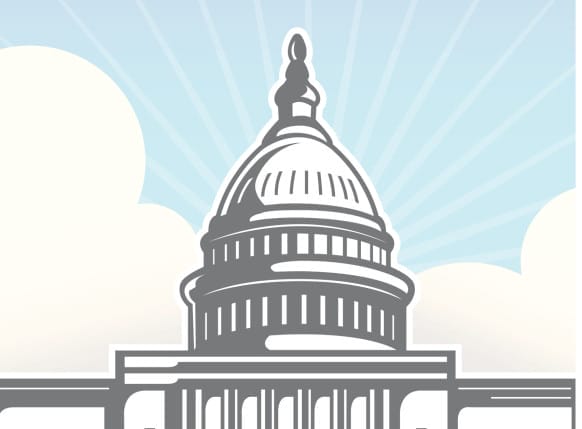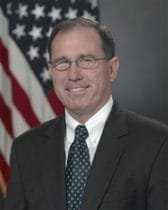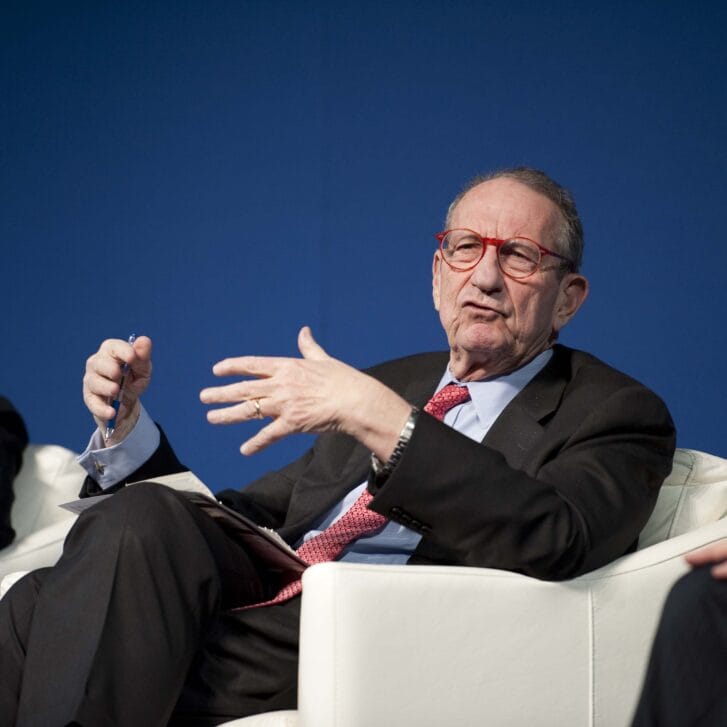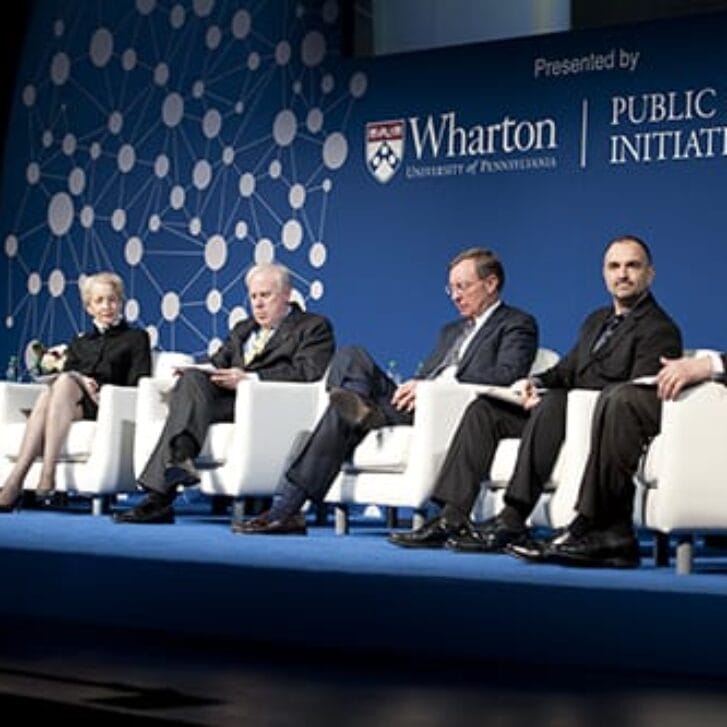Editor’s note: Wharton Executive Education has visited several cities as part of its strategy to grow Wharton’s brand and increase ties with alumni and business decision-makers. Washington, D.C., was one of those stops. Here are highlights of the trip to the nation’s capital, including celebrating the launch of the Penn Wharton Public Policy Initiative, which serves as a resource for government leaders to gain access to expert, nonpartisan research and knowledge to help inform public policy decisions.
The Wharton School—known for nurturing the leadership and management skills of business leaders around the world—is lesser known for the grads who go on to distinguish themselves in a variety of government and nonprofit roles.
One of those grads, Michael Vickers, WG’88, undersecretary of defense for intelligence in the U.S. Department of Defense, served as the keynote speaker at an alumni reception attended by representatives from Wharton Executive Education, the Wharton Social Impact Initiative and the Penn Wharton Public Policy Initiative.
Vickers shared how his Wharton school experiences prepared him for his role in the Pentagon, and he addressed some of the hot issues and challenges our government faces—from terrorism and labor protests, to anti-U.S. sentiment abroad and National Security Agency surveillance leaks first made public in June.
The timing for establishing the Penn Wharton Public Policy Initiative in Washington has never been better. Wharton’s research into the latest trends driving the real estate and global financial markets and Wharton’s work in health economics is already helping inform national policy. Wharton is uniquely positioned to translate this research into recommendations for decision makers in government, whether they be senior executives at the World Bank or government officials connected to Congress. Often, that link between leading-edge, industry-neutral research and policymakers is hijacked by the influence of lobbyists and special interest groups.
Wharton is building on momentum already under way in social impact, where faculty and staff are actively partnering with organizations like the World Economic Forum, the Agriculture Department and even the U.S. Army.
Executive Education has partnered with a think tank, Third Way, to offer professional development programming for congressional staffers. The program, already run three times, has provided invaluable insight into the latest developments in housing and global financial markets—insight that staff members have already taken back and shared with the lawmakers they serve. Wharton intends to expand this program and offer it directly to Senate and House members.
Wharton’s presence in Washington represents an incredible opportunity for the School to build on its base of programs and strengthen linkages with government decision-makers. Wharton’s impressive portfolio of programs and the launch of the Penn Wharton Public Policy Initiative speak to the institution’s intention to grow its programming for government.
Engaged alumni will be critical to Wharton’s future as a trusted voice for leaders in the public sector. Alumni have already risen to key roles. From undersecretary of defense, to administrator of the U.S. Agency for International Development, to managers in NGOs, think tanks and local statehouses, Wharton grads are having a large impact on the public good.



























